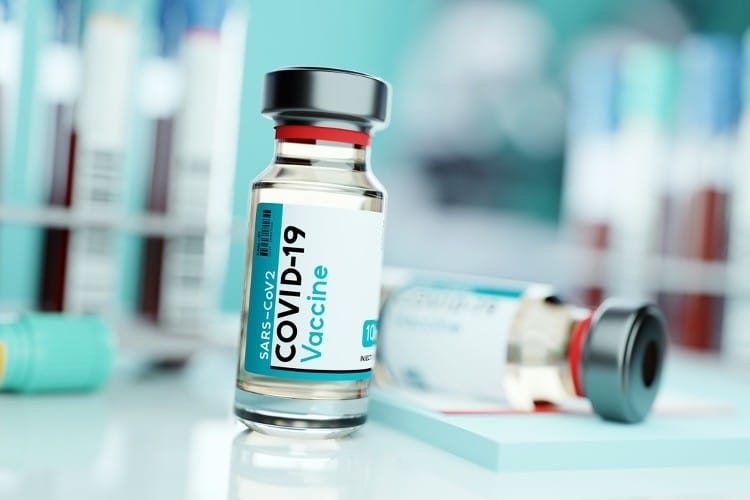
A Houston hospital was hit with litigation on May 29 for allegedly making its employees and doctors get the COVID-19 vaccine to keep their jobs.
The Houston Methodist Health System network became the first hospital in America to require all employees to get a COVID-19 vaccine. Currently, it oversees eight hospitals and has more than 26,000 employees. Houston Methodist gave workers a deadline of June 7 to get the vaccine — if not, staffers risk suspension and termination.
As a result, 117 employees have joined a lawsuit in Montgomery County that alleges the hospital is “illegally requiring its employees to be injected with an experimental COVID-19 mRNA gene modification injection or be fired.” “Methodist Hospital is forcing its employees to be human ‘guinea pigs’ as a condition for continued employment,” the lawsuit states.
Hospital CEO Dr. Marc Boom sent out a letter in April to staffers announcing that employees have to be vaccinated by June 7. “Please see the HR policy that outlines the consequences of not being compliant by June 7, which include suspension and eventually termination,” the letter, which was included in the lawsuit, stated.
The employees who are challenging the hospital believe they should have freedom of choice to take the vaccine without “force, deceit, fraud, threat, solicitation, or any type of binding or coercion,” and that the mandate is a violation of the Nuremberg Code, a medical ethics code that bans forced medical experiments and mandates voluntary consent.
The lawsuit cited that the U.S. Food and Drug Administration (FDA) issued its first emergency use authorization (EUA) for COVID-19 in December 2020, but the vaccines are awaiting full FDA approval and licensing, which will likely take months for the agency to review additional data.
Jennifer Bridges, a nurse who has worked at the Texas hospital for six years, is the lead plaintiff in the case. She said she wants more time for the FDA to gather more research on the vaccine before she gets it.
“People trying to force you to put something into your body that you’re not comfortable with, in order to keep your job, is just insane,” Bridges told KHOU-11, Houston’s CBS News affiliate.
Dr. Boom responded to the lawsuit, saying that 99 percent of Houston Methodist employees have already met the requirements for the vaccination mandate against the “deadly virus,” and added, “As health care workers, it is our sacred obligation to do whatever we can to protect our patients, who are the most vulnerable in our community. It is our duty and our privilege.”
He went on to state that “It is unfortunate that the few remaining employees who refuse to get vaccinated and put our patients first are responding in this way. It is legal for health care institutions to mandate vaccines, as we have done with the flu vaccine since 2009. The COVID-19 vaccines have proven through rigorous trials to be very safe and very effective and are not experimental.”
“Fact checkers” back Dr. Boom’s claim that “COVID vaccines are not experimental,” arguing the shots have not skipped any trial stages. But the formal stages that the COVID jabs went through are far from enough to consider them “not experimental.” This type of reasoning seems to be purely sophistic, since the FDA grants EUA for “investigational” drugs. All three injections that got EUA — Pfizer/BioNTech, Moderna and J&J — were defined as “investigational” by the FDA.
According to the National Institute of Allergy and Infectious Disease (NIAID), an investigational product refers to a preventative (vaccine), a therapeutic (drug or biologic), device, diagnostic, or palliative used in a clinical trial. An investigational product may be an unlicensed product or a licensed product when used or assembled (formulated or packaged) differently from the approved form, when used for an unapproved indication, or when used to gain further information about an approved use.
The FDA guidance on “Emergency Use Authorization of Medical Products and Related Authorities” explicitly states that that people “have the option to accept or refuse the EUA product.” Until the drug gets full approval, an informed consent of the recipient to use it is necessary.
However, according to the Centers for Disease Control (CDC), state and local mandates are subject to state and local laws.
“The federal government does not mandate (require) vaccination for people. Whether a state or local government or employer, for example, can require or mandate COVID-19 vaccination is a matter of state or other applicable law.”
Also, the Equal Opportunity Employment Commission (EOEC), a federal government agency that protects workers from discrimination, issued a new guidance on May 28, that, ironically, promotes discrimination against workers who refuse to get an experimental gene injection. The guidance allows employers to legally require COVID-19 shots to re-enter a physical workplace as long as they follow requirements to find alternative arrangements for employees unable to get vaccinated for medical reasons or religious beliefs.
Some of those accommodations include allowing an unvaccinated employee to wear a face mask and social distance while at work, to work a modified shift, get periodic tests for COVID-19, or be given the opportunity to telework or accept a reassignment, according to the guidance.
Hence, the outcome of the lawsuit filed by the Texas healthcare workers is hard to predict.




